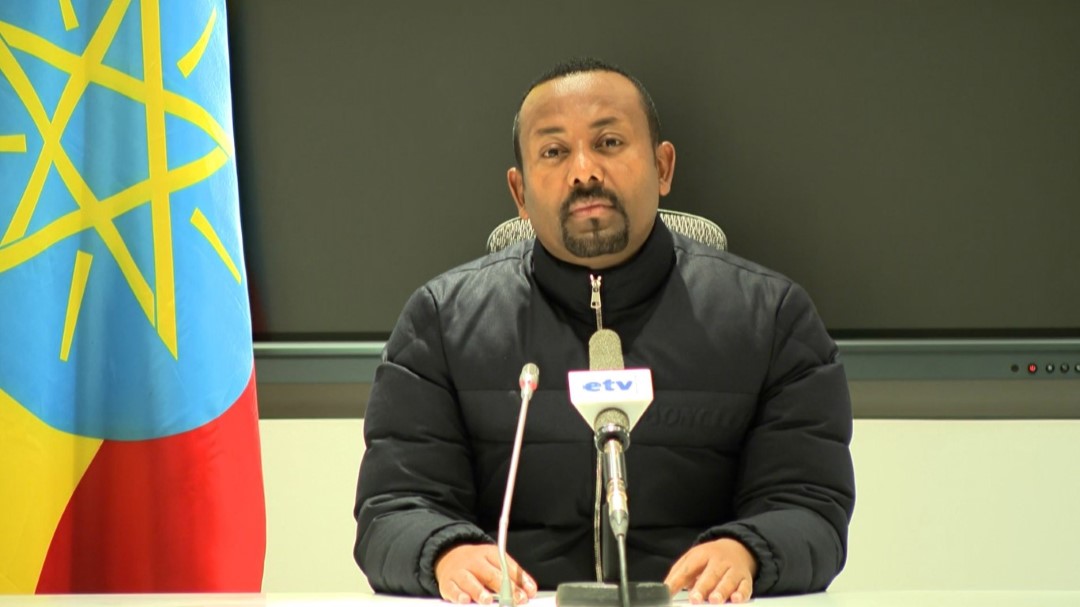Ethiopia’s ongoing war in the Tigray region has killed hundreds of civilians, and at least 800 troops despite assurances by Prime Minister Abiy that his nation would not slide into civil war.
Sources report that the figures could be twice as high with most of the casualties sustained on the Tigray community side.
The conflict in the northern area that borders Eritrea and Sudan threatens to escalate into a civil war and reverse the huge economic strides made by Africa’s second most populous region.
Prime Minister Abiy Ahmed has been leading the charge, though he was awarded the Nobel Peace Prize in 2019 for “his contributions towards maintaining peace in the Horn of African region.”
That seems a long way now, with reporters in Tigray and neighboring Amhara region reporting trucks packed with armed militia and pickups with mounted machine-guns rushing to the front line in support of the federal government push.
Abiy who hails from Ethiopia’s largest ethnic group, the Oromo, launched a campaign against forces loyal to Tigrayan leaders whom he accused of attacking a military base in the town of Dansha.
“Concerns that Ethiopia will descend into chaos are unfounded and a result of not understanding our context deeply,” he tweeted on Monday. “Our rule of law operation is aimed at guaranteeing peace and stability.”
Abiy has said that government jets have been bombing arms depots and other targets. Aid workers and security sources have reported heavy fighting on the ground.
Military officials in the federal government say that the Ethiopian army has killed at least 500 troops on the Tigrayan side, while sources in Amhara say that the Ethiopian army has also lost hundreds in the original battle in Dansha.
The Tigray People’s Liberation Front (TPLF), which governs the region, is battle-hardened from both the 1998-2000 war with Eritrea and the guerrilla war that toppled dictator Mengistu Haile Mariam in 1991. TPLF forces and militia allies number up to 250,000 men and possess significant hardware.
Tigrayans account for just 5% of Ethiopians but had, before Abiy’s rule, dominated politics since rebels from their ethnic group toppled Marxist military rule in 1991.
They say Abiy’s government has unfairly targeted them as part of a crackdown on past rights abuses and corruption.
“These fascists have demonstrated they will show no mercy in destroying Tigrayans by launching more than 10 air strike attempts in Tigrayan cities,” the TPLF said via Facebook.
The army said it was intensifying attacks and that large numbers of Tigrayan Special Forces and militia were surrendering. It denied a TPLF claim of downing a jet.
There is concern of the violence spewing into a full blown ethnic civil war with Abiy reliant on support from neighboring Amhara community after parts of the military’s Northern Command went over to Tigrayan control.
Will Davison, senior analyst at the International Crisis Group thinktank, said the TPLF might be capable of a strong counter-offensive. “The path to making the Tigrayan leadership surrender appears arduous,” he said.
Amid growing international concern, the TPLF has sought mediation by the African Union. The United Nations wants Abiy – a former soldier who fought alongside Tigrayans against Eritrea – to start dialogue.
There are fears of reprisals against Tigrayans elsewhere, with 162 people including a journalist arrested in Ethiopia’s capital Addis Ababa on suspicion of supporting Tigrayan forces.
The United Nations also warned that the conflict could also add to the hundreds of thousands displaced in the last two years.
But analysts do not believe the clashes will reawaken the conflict with Eritrea given that President Isaias Afwerki and Abiy both see the Tigrayan leadership as enemies.

